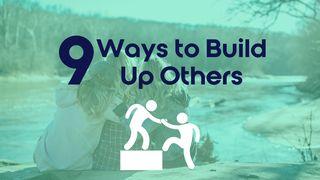A Practical Guide To CultureSample

Worldview
Our worldview is “the framework of basic beliefs we have, whether we realize it or not, that shapes our view of the world and for the world.” We all have fundamental beliefs about the nature of reality—whether the world is an accident of nature or a creation of God, whether right and wrong are absolute or relative, whether there is or isn’t an afterlife, whether humans are animals with a conscience or higher-order beings with some sort of privileged place in the universe. We build our lives and make decisions based on these fundamental assumptions.
Worldviews are caught more than taught. Like a cold, most people “catch” their worldview beliefs from the culture around them. If we never stop and examine our worldview, we’ll still have one, but it may not be the right one.
Our worldview, first of all, gives us a view of the world. Which world do we live in? Is life random, or does it have a purpose? Is history headed somewhere, or are we, as Ernest Nagel put it, “an episode between two oblivions”? Our view of the world is our explanation of reality, including our beliefs about the following:
-Origins: Where did everything come from?
-Identity: What is a human being?
-Meaning: What is the meaning of life? What is our purpose?
-Morality: Who determines right and wrong? What’s wrong with the world, and how can it be fixed?
-Destiny: What happens when we die? Where is history headed?
Forgive the double negative, but we can’t not answer these questions. If we don’t take time to answer them critically in our hearts and minds, we’ll answer them passively by how we live, how we make decisions, and especially how we relate to others. As Dr. Bill Brown often says, “You may not live what you profess, but you will live what you really believe.”
How we answer any one of these questions will shape how we answer the others. For example, if there is no God who created the world (origin), then humans are just products of natural forces like any other life-forms (identity). Or if Columbine High School shooters Dylan Klebold and Eric Harris were correct in their belief that there is no life after death (destiny), then they faced no eternal consequences for their actions on April 20, 1999 (morality). Even if we never take the time to think about them, our fundamental beliefs about life matter.
About this Plan

The cultural pressure is increasing, especially on our kids. But even in a world of ever-present screens, gender-identity questions, and addictions, kids can have clarity and confidence. We must help them.
More
Related plans

Hope in the Midst of Chaos: Devotions for Teen Mothers

Learn Encouragement: 9 Ways to Build Up Others

Embraced by Love

Dealing With Anxious Thoughts

Thriving Through the Holidays: 5 Days of Hope for the Military Wife This Christmas

Living With Enthusiasm: A 5 Devotional by Justeina Brownlee

Journey Through the Book of John

Christian Relationship Advice: Why Establishing a Strong Friendship Matters

Our Daily Bread: Bible in a Year
